CONTENTS
Message from the Associate Director
News & Stories:
A Warm Welcome: Riccardo Macchioro
Boultonian Fellowship: D'Arcy J. D. Boulton and Maureen B. M. Boulton
Alumni Spotlight: Andrew Hicks
Alumni Programme
Leyerle-CARA Prize: Emily Youree
Acclamations: Faculty, Student, and Alumni News
In Memoriam: Fr. James McConica
Lectures & Events: Convivium
Memorabilia: Social / Previous Convivia Photos
Publications
Summer Latin Programme
CONTRIBUTORS
D’Arcy Boulton
Maureen Boulton
James Farge
James Ginther
Andrew Hicks
Riccardo Macchioro
Emily Youree
Message from the Associate Director
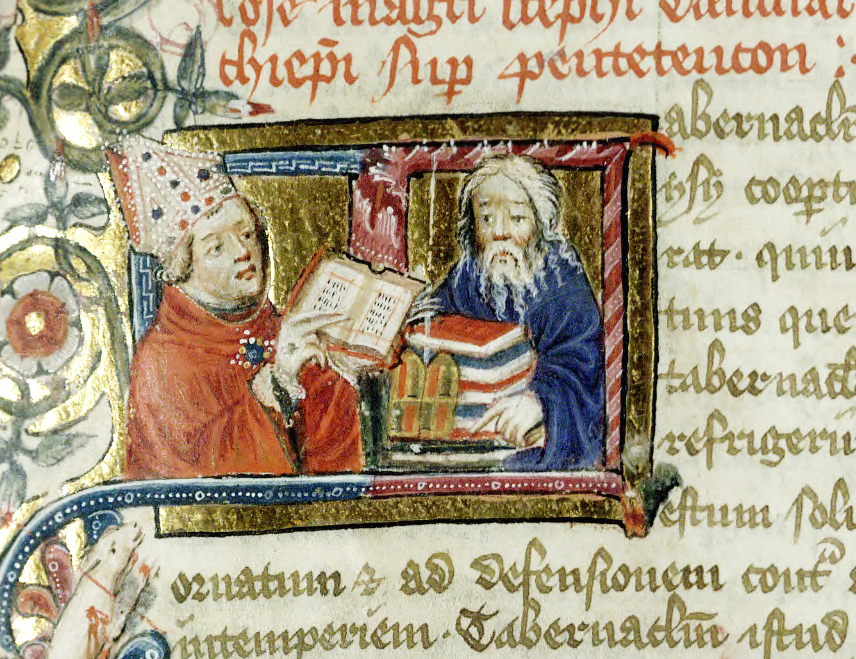
One of the projects I am currently completing is a SSHRC-funded critical edition and translation of Stephen Langton’s Super Genesim (in collaboration with Dr. Tristan Sharp). Langton taught theology at the University of Paris from ca. 1180-1206 and probably lectured on Genesis multiple times (the manuscript tradition reveals multiple versions that have been a challenge to collate). This is probably the first commentary on Genesis to come out of a university setting, and Langton’s influence as a commentator and theologian can be traced right up to the sixteenth century.
What has been so fascinating for me has been the multivalent purpose of his commentary: not only was he intent on explaining the meaning of Genesis to his students, as well as touching upon some of the major theological ideas of medieval Christianity, but he also modelled how an expositor of the sacred page should do the work. As he shifts from passage to passage, he often uses the imperative to indicate what a reader should think about next or what the commentator should explain subsequently. Like all good teachers, Langton not only imparts knowledge to his students, but he demonstrates how one can be a careful reader of a text.
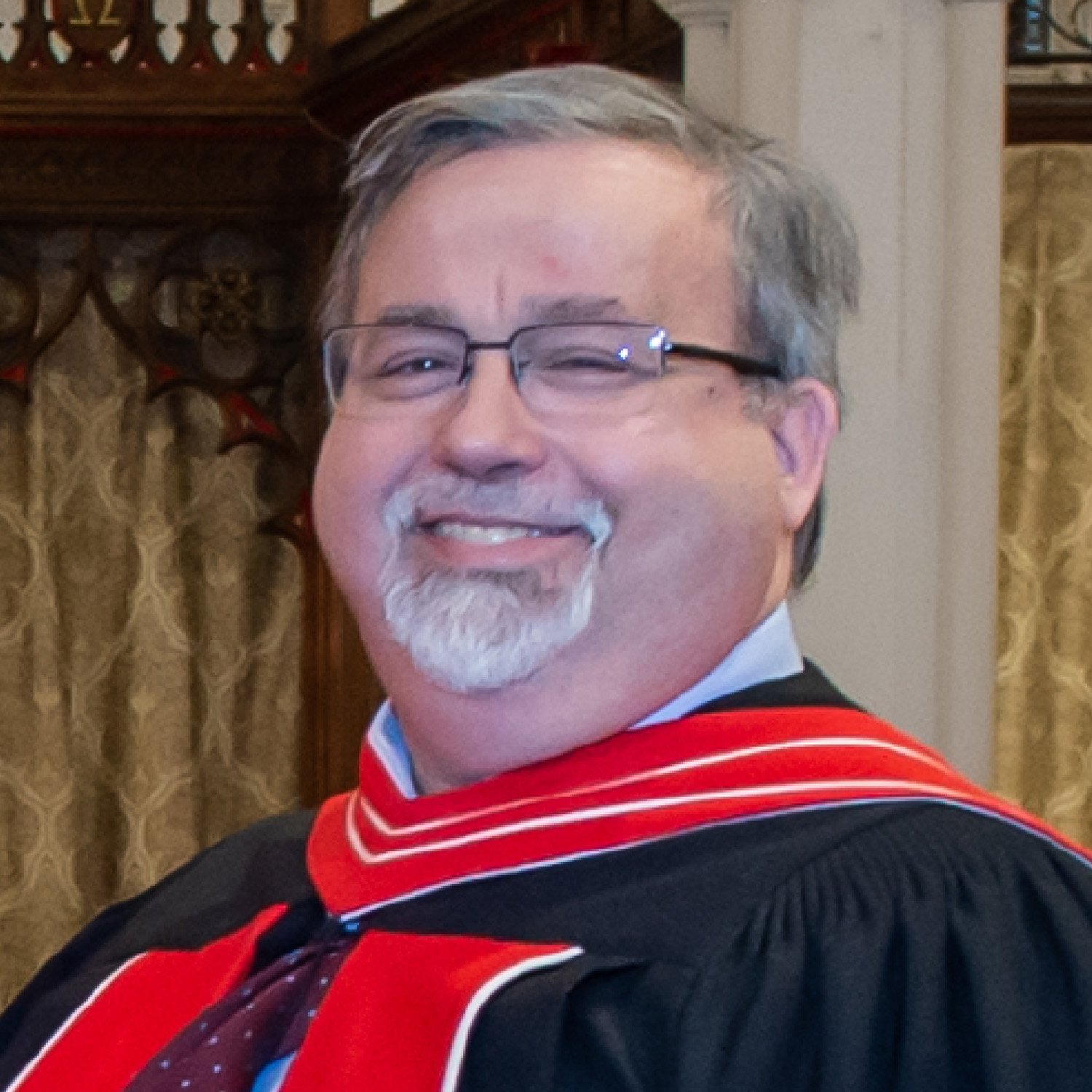
I was able to detect these various approaches in the commentary because of my training as a medievalist. Editing and translating a text like this has required me to think not just about its theological topics, but also about liturgy, literary theory, philosophy, the social and institutional history of medieval university education, paleography and textual criticism, and classical rhetoric. This is the benefit of medieval studies, wherein so many disciplines can come together to contribute to a deeper analysis of medieval texts and ideas. As a graduate of the Centre, I have benefited greatly from my training. Now that I have returned as a member of faculty and an administrator some twenty years later, I am excited about the opportunity to pay it forward to our current generation of students.
I am hardly alone in my commitment to interdisciplinary research. The community of scholars at the Centre has always been a rich resource, and I am personally grateful for the generosity of my colleagues. Moreover, interdisciplinarity flourishes at the Centre because of our students’ commitment to preserving the Great Hall as a safe place for the robust exchange of ideas.
Here in this Spring issue of the Chronica, we learn more about this community of researchers, warmly welcoming new faculty, Riccardo Macchioro, showing our gratitude to benefactors, D’Arcy and Maureen Boulton, and preparing for the Annual Alumni Lecture with Andrew Hicks. We share community stories and opportunities, invite former students to re-engage with the 2024-2025 Alumni Programme, and welcome all readers to continue to connect.
News & Stories
A Warm Welcome
This summer, the Centre for Medieval Studies warmly welcomes Dr. Riccardo Macchioro as Assistant Professor of Medieval Latin Studies and Culture. As he prepares for his forthcoming move from Italy to Toronto, Professor Macchioro reflects on his scholarly path from Classicist to Medievalist, and how the new adventure will contribute to his research.
How did your interest in Medieval Studies develop, and what has contributed to your pursuits in this field?
I have always considered myself a Latinist, so while pursuing my academic education in Classics at the University of Milan, it felt natural to focus my studies on Ancient Latin Literature. However, as I sometimes say jokingly, I was rather soon converted. Attending a Medieval Latin Literature course during my MA sparked a new interest; getting the sense that thousands of unread medieval manuscripts lie forgotten on the wooden shelves of libraries (or, nowadays, even ‘digital’ shelves) did the rest. There was a new world to be discovered, and thus the journey got started.
For almost 13 years now, meeting and working with truly outstanding scholars has proven crucial to keep learning and improving. My mentor, former MA and PhD supervisor, and now colleague, Paolo Chiesa, inspired in me a genuine passion for research and teaching, a scientific method, and how to make sense of details placing them in a broader picture. I also owe much to my international academic experiences, especially my appointment at Radboud University Nijmegen. This was a key step towards expanding my scientific interests, in terms of both topics and approaches, as well as building a diverse academic network. Now, I am eager to further expand it thanks to the interdisciplinary community at CMS.
How has your research evolved, and how will CMS factor into its evolution?
As I love taking on new research challenges, I have been fortunate to often be presented with opportunities to engage with new topics, genres, and methods. As a result, I have explored a diversity of medieval fields, spanning from Greek-Latin translations in the Middle Ages to Dante, and from hagiography to the reception of the Latin Classics and Church Fathers. And as you can see, despite the “conversion,” I have not forgotten my formation as a classicist!
I began as a pure philologist, with a strong text-centred focus, but developed a more comprehensive approach, including that of reception and materiality. In more recent years, I have grown more and more intrigued about the immense heuristic potential of digital humanities applied to manuscript studies. Cooperation with colleagues active in this dynamic and quickly evolving field at CMS will be crucial to further pursue this interest. In addition, at CMS I look forward to working with scholars and students across disciplines on themes such as intercultural exchanges, and authority and tradition in the Middle Ages.
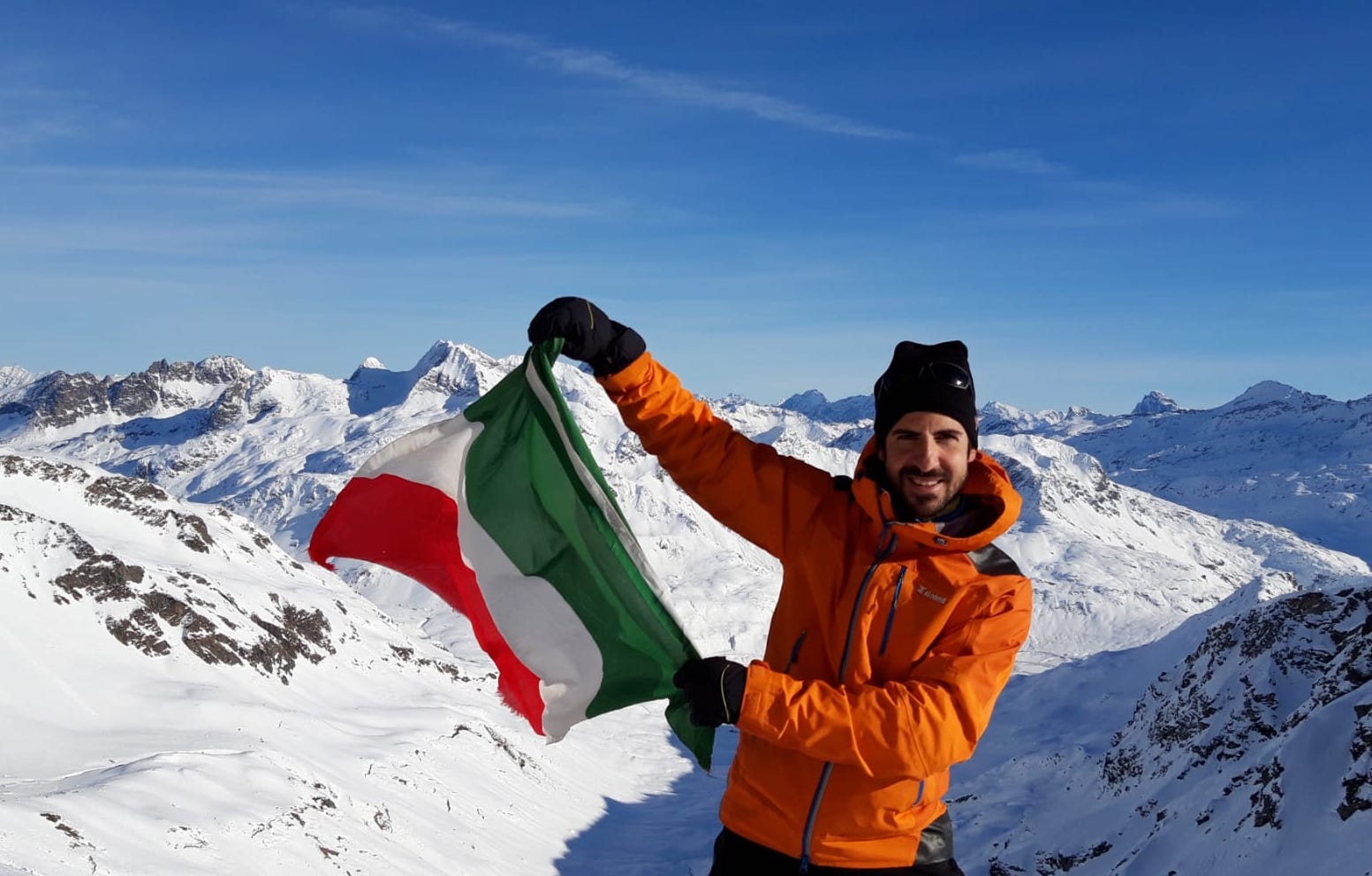
How are you preparing for your new endeavour at CMS, and how will it contribute to your research?
An amazingly well-equipped academic network entirely dedicated to Medieval Studies at CMS, USMC, and PIMS is the ideal environment to take the next step in my scholarly journey. I am thrilled to see how being a part of this nexus will complement my own expertise, helping me formulate and develop new ideas, and in return, I am confident that I will bring my own contribution, eager to discover what I can build in the long run. As a project PI, I am currently investigating the evolution of the historiographic approach in Latin universal chronicles between the Middle Ages and Humanism. And, in another project, I plan to explore the reception of medieval translations into Latin through the material traces and annotations left by readers on manuscripts. I am sure that both topics will greatly benefit from my new colleagues’ expertise.
I am equally excited to teach in Toronto, as I firmly believe that knowledge stems from an inclusive classroom environment, dialogue, and personal engagement with the proposed topics. In class I like to explore pieces of evidence with students (combining textual, visual, and material aspects), fostering a discussion where every opinion is valuable in view of a shared achievement. It goes without saying that it means a great deal to move to Canada from Europe, but I am very glad to reveal that my prevailing feelings are those of curiosity and anticipation. During my visit last December, I met a warm, friendly, and welcoming community; I remember unexpectedly ending up at the PIMS Tea and immediately feeling at ease. Even shortly after that visit, contacts with CMS members emerged that have laid ground for future shared endeavours. Premises and promises could not be better; all that remains is to embark on the adventure!
Professor Macchioro joins CMS and the University of Saint Michael’s College Undergraduate Program in Mediaeval Studies July 2024.
Boultonian Fellowship
Professors D’Arcy J. D. and Maureen B. M. Boulton have generously created the Boultonian Graduate Fellowship in Medieval Studies, open to any graduate student in a medieval field. We learn about their own academic journeys, and how they motivated the initiation of this benevolent award.
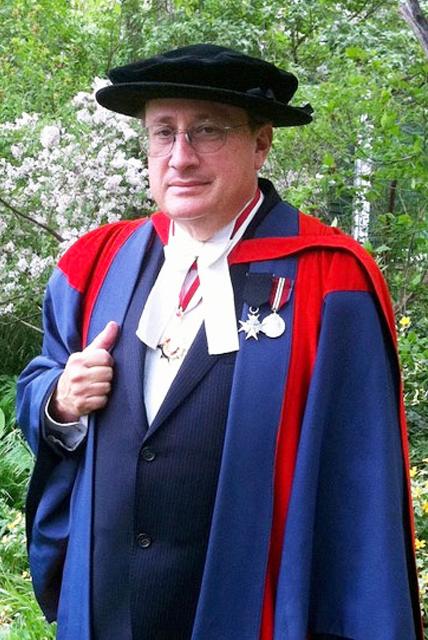
I was born and raised in an old Toronto family conscious of its medieval roots and I grew up with a fascination for heraldry and medieval culture, generally. I completed my honours BA in history at the University of Toronto in 1969, and then undertook an MA and PhD in medieval studies (specializing in the institutional and cultural history of nobilities) at the University of Pennsylvania. There, I met my future wife, Maureen (born and raised in the suburbs of New York), in an Anglo-Norman class. She was beginning her work toward a doctorate in medieval French studies, with a particular interest in Anglo-Norman, lyric poetry, and religious literature.
We were married on the eve of our migration to Oxford University in 1972, where we had access to manuscript collections necessary for our research, and affordable housing provided by my college. There, we worked for three years, both on our dissertations for Penn and on our additional theses for Oxford, all of which we managed to complete before or soon after moving back to North America in 1975. We took turns holding jobs separately at Davidson College, Brandeis, and Harvard Universities, and finally from 1985 together at Notre Dame, where we both played official roles in its Medieval Institute as well as in our disciplinary departments.
In addition to teaching many courses on all levels in our respective fields, we both enjoyed numerous research trips to Europe and spent many happy hours in the libraries and archives of England, France, Italy, and other countries with manuscripts of interest to us. These trips provided us with material for learned papers presented at conferences, and for articles, monographs, and editions of texts. We retired as full professors emeritus in 2015 and 2017, and moved back (in my case) to Toronto.
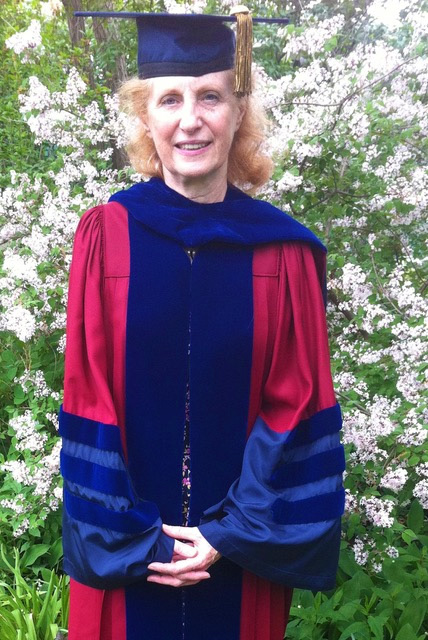
In our semi-retirement, we have been fortunate enough to be welcomed as members of the University of Toronto community. We happily participate in events of all kinds at CMS and the Pontifical Institute, and we have enjoyed the opportunity to meet and encourage younger scholars in our fields – postdoctoral fellows, graduate students, and the undergraduate students at St. Michael’s College. We have been impressed by the quality of these young scholars, who appear to be both highly intelligent and very well-prepared. They ask new and interesting questions of the past, and they seem tremendously equipped to pursue the studies they have chosen.
My wife and I have established the Boultonian Graduate Fellowship with the aim of supporting the advanced study of medieval culture. The fellowship supports students on both postgraduate levels in any medieval field, including history, languages, music, philosophy, and theology. We were motivated to introduce this fellowship after observing both a presentist and a utilitarian trend in university programming, which reflect similar trends in society at large. We were therefore concerned to do what we could to support our own broad field dedicated to understanding the complex developments in all areas of the culture of a major phase of European history, in which many elements of our current culture in North America were established. If graduate studies in such fields are not supported, they will wither, and the general cultural knowledge important for understanding how the world came to be what it is will be seriously diminished. Supporting the Centre was a clear choice, as it is the very best place in North America to pursue Medieval Studies.
- D’Arcy J. D. Boulton with Maureen B. M. Boulton
Professor D’Arcy J. D. Boulton is Emeritus Professor of History and Medieval Studies at the University of Notre Dame; Professor Maureen B. M. Boulton is Emerita Professor of French at the University of Notre Dame, and Associate Fellow at the Pontifical Institute of Mediaeval Studies.
The Centre for Medieval Studies at U of T has exacting standards in training core skills, and its Latin examinations are viewed as the international gold standard. The study of language is complemented by expert training in paleography and manuscript studies. This outstanding record in original scholarship at CMS is possible due to the many resources available through the priceless collections of the Thomas Fisher Rare Book Library and the world-renowned library at the Pontifical Institute of Mediaeval Studies, and donations aid in shaping the future of our students and our community. Donors have the option of supporting teaching, research activities, visiting scholars, and graduate studies in a variety of ways.
To learn more, visit https://uoft.me/aij.
Alumni Spotlight
Andrew Hicks, CMS Alumnus and Professor of Music, Classics, and Medieval Studies at Cornell University will deliver this year’s Annual Alumni Lecture in honour of his former advisor, John Magee. Professor Hicks shares with us his formative experiences at CMS, how they invaluably shaped his current research and teaching, and how his work continues to evolve into new territory.
How did your scholarly journey lead you to CMS, and what did you gain from your studies at the Centre?
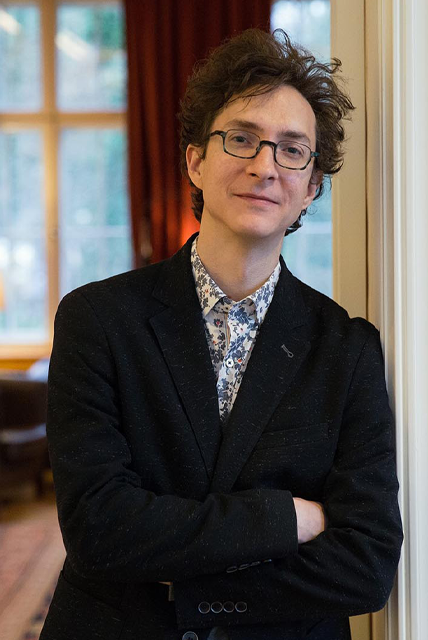
My academic path has been fortuitously serpentine, shaped by curiosity, serendipity, and the generosity of my teachers along the way. My first passion was the piano, and my youthful studies in classical and jazz piano (and the occasional church organ) led me to Truman State University where I earned a BMus in Piano Performance with a minor in Classical Languages. Many years of intense practicing, however, had left me burnt out on performance, so I decided to explore the adjacent space of musicology. I headed northward to the doctoral program in musicology at the Eastman School of Music, intent on studying musical modernism and fin-de-siècle Vienna. When I arrived, however, Dr. Gabriela Currie (now at the University of Minnesota) presciently insisted that my previous studies in Greek and Latin meant that I must take her History of Music Theory seminar. It was my first graduate seminar, and the first lecture on Boethius’ De institutione musica opened a realm of philosophical, cosmological, and music-theoretical exploration even more alluring than literary modernism. I didn’t look back. Over the next few years, I dug ever more deeply into medieval musicology and the quadrivium more generally (I even began studying Arabic to understand better the influx of translations), and a dissertation idea about music theory in medieval Platonism gradually began to take shape. I also became increasingly convinced that I needed more proper training in philosophy, philology, and textual criticism to do the topic justice. So, after passing my doctoral exams in musicology at Eastman, I decided to pursue what I thought would be a parenthetical master’s degree – vocational training to make me a passable medievalist.
I again looked north and applied to the Centre for Medieval Studies because of John Magee, whose Boethius on Signification and Mind I’d first encountered in a seminar on Aristotle’s theory of language, and because Fr. Édouard Jeauneau was working on medieval Platonism (inter alia) at PIMS. I only found out upon my arrival that he was, serendipitously, revising his edition of William of Conches’ Glosae super Platonem, which had become central to my intended dissertation. In that first year at Toronto, I took seminars with Virginia Brown (paleography), Brian Stock (Augustine), George Rigg (Medieval Latin), Maria Subtelny (Classical Persian literature), Deborah Black (Arabic philosophy), and John Magee (Boethius), while working as a research assistant to Fr. Jeauneau. It was quickly apparent, a second time, that there was no going back.
I left my program at Eastman and enrolled in the doctoral program at CMS. The next six years of graduate work allowed me the privilege of expanding my musicological studies into a broader network of philosophy, philology, languages (now including Classical Persian), and literatures. Outside the seminar room, however, my experience at CMS was equally shaped by the informal network of peer reading groups (in Greek, Latin, Arabic, and Persian), paleographical and philological pub nights, and discussions with my mentors outside of the seminar room – colleagues and faculty alike were generous with their time and expertise, a tradition that I’ve tried to continue with my own students.
The winding, mostly unintentional shape of my academic journey eventually led me to an equally interdisciplinary position at Cornell University as Associate Professor of Music, Classics, and Medieval Studies, current Director of the Medieval Studies Program, and affiliated with Near Eastern Studies, Religious Studies, and even the Carl Sagan Institute. In all my seminars – which range across medieval Latin prose style and poetics, paleography and textual criticism, medieval cosmology, Latin philosophical commentary and late Platonism, medieval mathematics, and global histories of music theory – I try to inspire in my students the same spirit of interdisciplinary enquiry that I encountered at CMS. And I continue to learn from and engage with many of my mentors from Toronto – on the board of the Journal of Medieval Latin, at conferences and lectures, and by sending my own students to the many scholarly opportunities afforded by CMS and PIMS.
How have your studies at CMS shaped your research, and how has it evolved?
My first book, Composing the World: Harmony in the Medieval Platonic Cosmos, which grew out of my dissertation, challenges narratives of a Weberian disenchantment that regards a harmonious, musically organized natural world as one hallmark of a discredited, magical pre-modern worldview, and reevaluates medieval Platonic cosmology both on its own terms and in dialogue with recent vibrational and relational ontologies that still resonate with the forgotten history of their classical and medieval antecedents. My in-progress monograph continues my fascination with inaudible music by returning to the Persian literary traditions that I first encountered at CMS with Maria Subtelny. The Broken Harp: Listening Otherwise in Classical Persian Literature argues that the “broken,” silent state of our modern access to (un-notated) medieval Persian musical cultures is but the most recent in a long series of sonic ruptures that are embedded within the Persian musical imaginary. The titular “broken harp” is an enduring poetic image in Persian literature that can help us think, in tandem with contemporary media archeology and sound studies, about listening as an “audile technique” that extends beyond the audible. Historical accounts of listening and philosophies of audition, in short, can tell us much more than just what historical listeners may have heard.
In addition to co-editing the Journal of Musicology, and succeeding Édouard Jeauneau as co-editor with Irene Caiazzo (CNRS) of the Guillelmi de Conchis Opera Omnia, Fr. Jeauneau had also entrusted me with the completion of the editio princeps of William’s Glosae super Priscianum, whose initial transcription, spanning more than one thousand pages, had been shaped by generations of medievalists at CMS working diligently in Fr. Jeauneau’s carrel at the PIMS library. It is an honour to carry on his legacy with a new generation of students at Cornell. With Anna Zayaruznaya (Yale University), I’m co-writing an annotated sourcebook on medieval musical notation, Readings on the History of Musical Writing, which builds on a longstanding summer workshop, the “Historical Notation Boot Camp,” that Anna and I have offered regularly at Yale and Cornell. All these and other projects are indebted, directly and indirectly, to the many areas of study and exploration afforded me during my time at CMS, as the many fields in which I remain active, and the scholarly collaborations that I’ve enjoyed have expanded my range of methodological and theoretical approaches.
What does it mean to return to CMS to present this year’s Alumni Lecture?
I am extremely honoured to deliver the 2024 Alumni Lecture, not least because it will be moderated by John Magee, whose guidance, mentorship, and friendship indelibly shaped my time at CMS. Among my most formative experiences at Toronto was an independent study that I took with John on Latin Platonism. One of the first tasks he assigned me was to retranslate a portion of Calcidius’ Latin Timaeus back into Greek, collate my back-translation against Burnet’s modern edition, and return the next week with something worthwhile to say about the status of Calcidius’ Greek source text. It was a feverish week’s work, to say the least, and I don’t remember having arrived at anything worthwhile. But the exercise instilled in me the creative force of the philological and philosophical enterprise – that a text, argument, or position is always shaped by deep currents that may not be readily apparent through any surface disturbance, but that are nonetheless deducible through the creative, scholarly imagination of what used to be called the philologist’s divinatio. After that, I used to joke that I’d back-translated one of John’s own lectures on Platonic philosophy into Greek and discovered that it was actually a lost work by Porphyry.
Admittedly, my Alumni Lecture, drawn from my Persian book project, will take me well beyond the Greek and Latin terrain that John so expertly mapped during our studies. For that, I beg his indulgence. I’d planned to offer a lecture “On the Composition and Sources of William’s Glosae super Priscianum,” in clumsy emulation of John’s own magisterial “On the Composition and Sources of Boethius’ Second Peri Hermeneias Commentary.” John’s article weaves an engrossing story about Boethius’s own exhaustive scholastic appetite, both its remarkable fruits and its limitations; I suspect now that John saw in Boethius’s youthful energies no small premonition of his own exhaustive endeavours as editor of Boethius. My lecture on William’s Glosae super Priscianum, however, was not nearly so dramatic or captivating. It turned out to be, in a word, boring. And so, with apologies to John, I’ll spare my audience the nuanced particulars of my collation of manuscript evidence, for example, William’s views on third declension adjectives ending in -rix – a lecture that only a (former) advisor could love – and instead invite you to listen with me to the soundscapes of the Persian poetic imaginary. But this topic, too, is indebted to the Centre for Medieval Studies, a place that allowed my imagination free reign and shaped the future of my many scholarly endeavours. It is an honour to have studied with John Magee and the rich community of scholars at CMS and PIMS (too many to name here). I hope that this lecture lives up to the model that they set for me.
Hosted by John Magee, Andrew Hicks will deliver the Annual Alumni lecture on April 5 as part of the CMS Convivium. All are welcome to join us in person or virtually.
RSVP today!
Alumni Connections
Alumni Programme
The CMS Alumni Programme offers a range of options that allow Alumni to connect with and contribute to the vibrant community of the Centre. Alumni working both in or outside of academia can inspire and encourage CMS students by sharing their own explorations and strengths with the next generation of medievalists, and in turn, can foster new relationships, discover fresh ideas and support, and form thriving connections in their field.
Communications
Alumni are invited to share information about their current positions and news, and in turn receive relevant communications. Keeping your contact information updated allows Alumni to reconnect personally and professionally with not only the Centre for Medieval Studies, but the greater community at U of T.
Dissertation Awards
Interested Alumni currently working in academia may request to serve on the Dissertation Award Committee, assisting in identifying the top PhD successfully defended dissertation from the previous academic year.
Mentorship
CMS Ambassadors are matched with an advanced PhD Student to provide individual mentorship and support, discussing topics relevant to the Student’s professional future. Sharing their formative experiences, Alumni mentors will help encourage students through their transition from doctoral researchers to PhD Graduates.
MST 1003
The MST 1003 Professional Development course prepares students to make the most of their time in the doctoral programme, and for the transition from university to post-graduation reality. Interested Alumni may be invited as Guest Speakers, providing an overview of non-scholarly skills, from funding and academic challenges, to career alternatives and preparations, all with a focus on the uncommon challenges faced by students in this interdisciplinary field of study.
Convivium
The CMS Convivium provides a forum to showcase the community through a series of lectures and social events. With a hybrid option, all Alumni are invited to attend either virtually or in person, connecting with our current Students and Faculty for a lively lunch preceding each lecture. Interested Alumni may also be invited to present their in-progress and collective research as a Guest Lecturer.
Donor
Donations aid in shaping the future of our students and our community. From bequests to matching programs, and more, there are a variety of donorship options depending on your philanthropic goals. Your gift to the Centre for Medieval Studies creates extraordinary impact and transformative change, and we are eternally grateful for your support.
Participate in the 2024-2025 Alumni Programme by clicking below.
Research at CMS
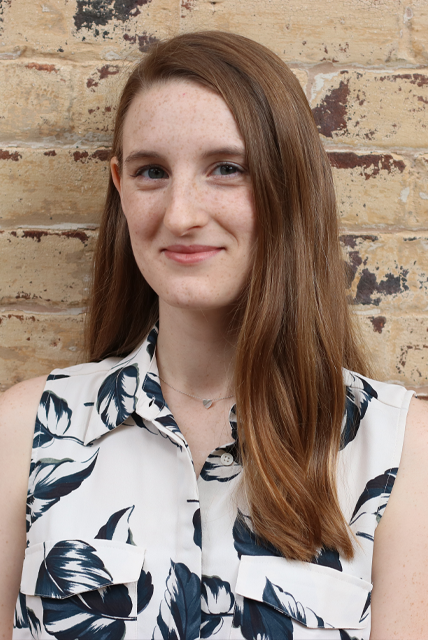
In honour of John Leyerle, who served as Director of CMS (1966-76) and founded the Poculi Ludique Societas, the Medieval Academy of America (MAA) and the Committee on Centers and Regional Associations (CARA) offer an annual prize to support doctoral research and travel to access material in Toronto libraries and collections.
This year’s award is presented to Emily Youree, PhD Candidate and Graduate Teaching Fellow at the University of North Carolina at Chapel Hill.
“My research at CMS will centre in the Records of Early English Drama (REED), where I will analyze information on the staging and performance of early Robin Hood plays. REED’s collaboration with Poculi Ludique Societas (PLS) creates an ideal hub to study primary evidence for medieval and early modern Robin Hood productions alongside records of academically informed modern performances of them. I’m excited to delve into this unique nexus of text and interpretation in practice, and to research alongside CMS’s vibrant academic community.” - Emily Youree
The Leyerle-CARA Prize is offered annually for travel to Toronto in the period between May 1 and April 30, and grants funding along with access to U of T’s Robarts Library, the collections of the Dictionary of Old English, the library of the Pontifical Institute of Mediaeval Studies, and more.
Records of Early English Drama
Acclamations
FACULTY NEWS
- Riccardo Macchioro was appointed Assistant Professor tenure-track in Medieval Latin Studies and Cultures at CMS and USMC.
- We wish John Magee all the best with his retirement this summer.
- Haruko Momma was elected 2nd Vice President of the Medieval Academy of America.
- Matthew Sergi, with Poculi Ludique Societas, was awarded a Centennial Grant from the Medieval Academy of America for their 2025 York Corpus Christi Plays.
- Sebastian Sobecki was elected trustee of the New Chaucer Society.
- Markus Stock was re-appointed as Principal of University College.
STUDENT NEWS
- Katie Menendez successfully defended her dissertation, Time and History in the Early Anglo-Norman World: Durham c. 1080–1130.
- Bard Swallow was awarded the CMS First Publication Prize for Common Authorship and the “Anonymous of Calais”: Reassessing an Anglo-Latin Political Poem from the Fourteenth Century (JML 33, 2023, pp. 89–118).
ALUMNI NEWS
- Magda Hayton (PhD, 2014) was named Adjunct Faculty at the School of Mental Health and Behavioral Sciences at Missouri State
- University.
In Memoriam
Fr. James McConica
Rhodes Scholar at Oxford, Officer of the Order of Canada, Research Fellow at All Souls College at Oxford, Corresponding Member of the British Academy, Foreign Member of the Royal Belgian Academy, Fellow of the Royal Society of Canada, Fellow of the Royal Historical Society, Associate Professor of History and Centre for Medieval Studies at the University of Toronto, President and Vice-Chancellor of the University of St. Michael’s College, Praeses and Senior Fellow of the Pontifcal Institute of Mediaeval Studies, Guggenheim Fellow, holder of honorary degrees from six universities, Director of the Canadian Rhodes Scholars’ Foundation, Chair of the Editorial Board of the University of Toronto Press’ Collected Works of Erasmus (CWE); the holder of these titles, James Kelsey McConica was born in Luseland, Saskatchewan. After completing a BA in History and Philosophy from the University of Saskatchewan in 1951, he earned the Oxford BA in 1954 and MA in 1957. He was Assistant Professor of History at the University of Saskatchewan until 1962, when he returned to Oxford to earn a PhD in 1963 with a thesis entitled “The Continuity of Humanist Ideas during the English Reformation to 1558.” His first book, English Humanists and Reformation Politics (Oxford, 1965; reprinted 1968) established him as a leading authority in the field of Renaissance humanism. He and Natalie Zemon Davis co-founded the Toronto Renaissance and Reformation Colloquium in 1964 and its bilingual quarterly journal, Renaissance and Reformation / Renaissance et Réforme.
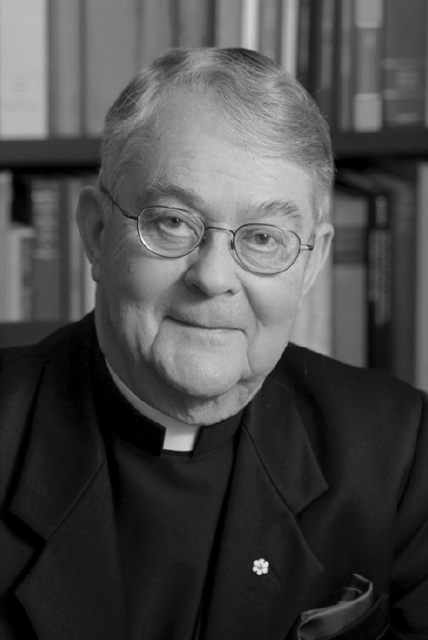
With studies at the Pontifical Institute of Medieval Studies, he earned an MA in Philosophy from the University of Toronto in 1964, submitting his thesis, “St. Thomas Aquinas’s Doctrine of Analogy in the Commentary on the Sentences.” With a growing conviction that he was called to the Roman Catholic priesthood, he joined the Congregation of St. Basil, where, after three years of theological studies, he was ordained a priest in 1967. Using the Guggenheim Fellowship and two other grants, he did further research at Princeton
and Oxford, returning after each research break to teach at the Pontifical Institute.
From 1984 to 1990, Fr. McConica was President and Vice-Chancellor of the University of St. Michael’s College. It was a difficult period of financial constraint, during which he used three outlets to lessen the burden of administrative duties: he prepared particularly promising students for a Rhodes Scholarship, he enhanced the St. Michael’s campus by planting trees, roses, and other perennials, and he worked to make the campus ministry more relevant on campus and in St. Basil’s Collegiate Church.
From 1990 to 1997, Fr. McConica was once again a Research Fellow at All Souls College, and in those years was a member of both the Faculties of History and Theology. For recreation, he organized the Oxford rowing team, and he helped in religious ministry to prisoners at the Oxford jail. As Chairman of the Editorial Board of the Collected Works of Erasmus since 1974, he was constantly on the watch for good translators of Erasmus’ Latin prose into contemporary English, and for editors who could put those volumes of
correspondence, and of educational, biblical, and controversial texts into a factual context. The CWE series, having now published 74 volumes of its eventual 87, is considered by many to be among the most ambitious and most successful publishing ventures in the past century.
In 1996, Father McConica was elected Praeses of the Pontifical Institute of Mediaeval Studies, which at the time was in some financial straits. He replaced its elaborate graduate teaching program with a smaller one in which fewer Fellows, while doing their own research, supervised the research of young postdoctoral Fellows. Using his personal connections, he instigated a program of matching funds that would eventually put that program and the new Leonard E. Boyle Program in Manuscript Studies on a solid fiscal basis. He later hired an experienced Director for the Publications Department who put it also, in a viable financial position. Retiring
after 12 years, he was able to turn a renewed, stable Pontifical Institute over to his successor.
Besides his monograph on English humanism, Fr. McConica produced: The Collegiate University (vol. 3 of The History of the University of Oxford ([1986]), he edited volumes 3 and 4 of the CWE, and he wrote short monographs on Erasmus and Thomas More, which were both translated into other languages. Assisted by a Dutch colleague, his final academic venture was putting the elaborate bibliographical research of the Dutch scholar Egbertus van Gulik into publishable shape as Erasmus and His Books (Toronto, 2018). In addition, he published 52 articles or book chapters and about 30 short biographies for encyclopaedias and biographical registers. After a serious fall in 2018, Fr. McConica retired from active life into an assisted-living facility alongside other aging Basilian confreres. He remained fully compos mentis until a cardiac attack took his life on December 20, 2023 at the age of 93.
- James K. Farge, CSB
Rev. James Farge is Professor Emeritus at CMS and Curator of Rare Books and Special Collections at PIMS.
Lectures & Events
Convivium
The 2023-24 Convivium season concludes with three exciting lectures from Alumni and guest speakers. Held on Fridays at CMS (3rd floor, Lillian Massey Building, 125 Queen’s Park), we invite our community for an afternoon of riveting discussion. Visit www.medieval.utoronto.ca/events for full details and to RSVP.
April 5 - 2:30 pm
Annual Alumni Lecture with Andrew Hicks (Cornell University)
hosted by John Magee
Listening Otherwise in Classical Persian Literature
(*End-of-Year Party to follow)
April 12 - 4:30 pm
O'Donnell Lecture with Carmen Cardelle de Hartmann (University of Zurich)
hosted by Greti Dinkova-Bruun, co-sponsored by the Journal of Medieval Latin
Petrus Alfonsi, A 12th-Century Polymath and Christian Convert: An Intellectual Profile
(*Reception to follow)
April 19 - Old English Colloquium with Tarren Andrews (Yale University)
co-sponsored by the Department of English
Legacies of Surveillance: Data, the Domesday Book, and the Dawes Act
(*with Master Class, 11 am)
Memorabilia
Social

PhD Student, Claire Davis treats CMS to a beautiful and delicious King’s Cake!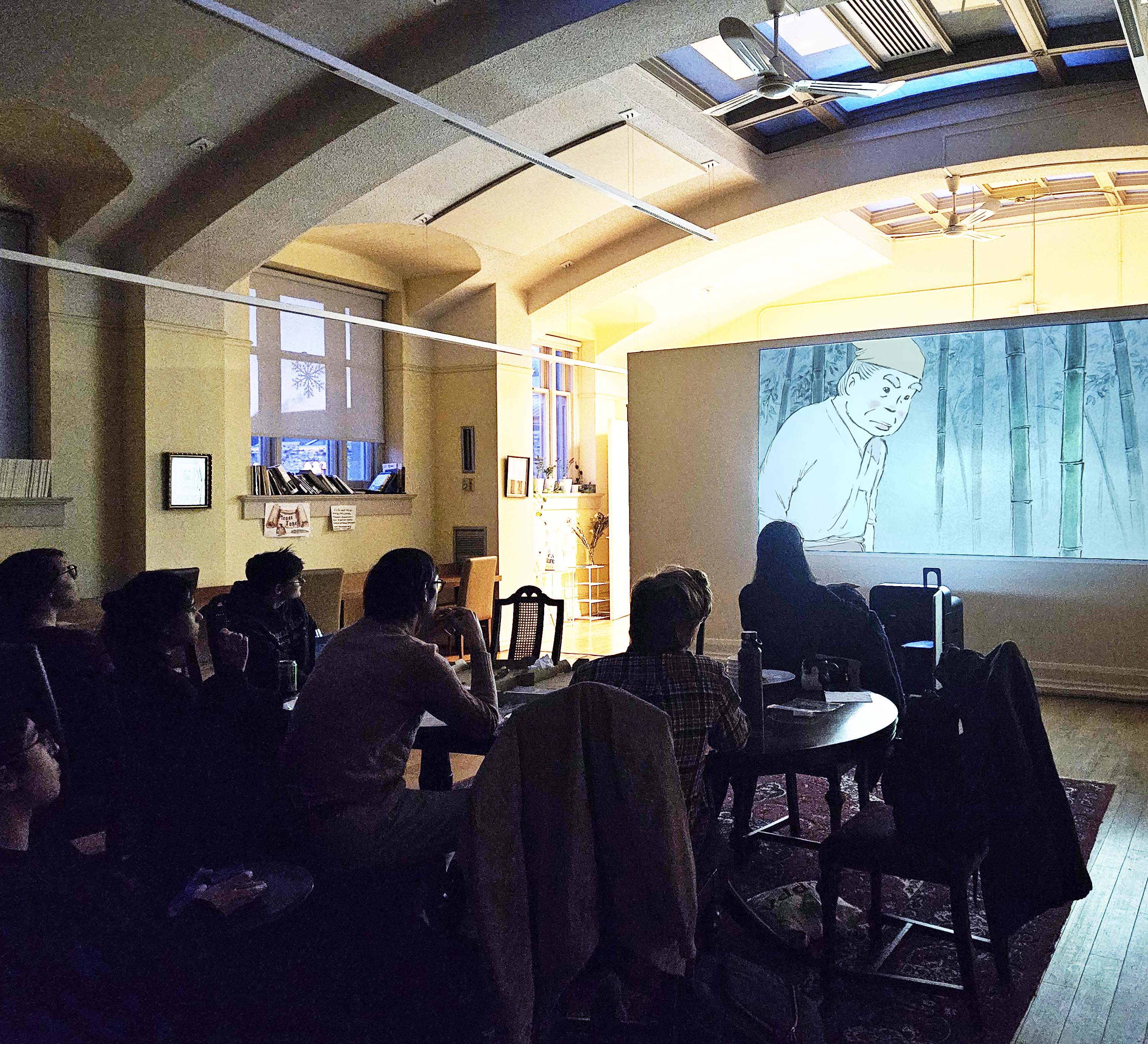
Previous Convivia
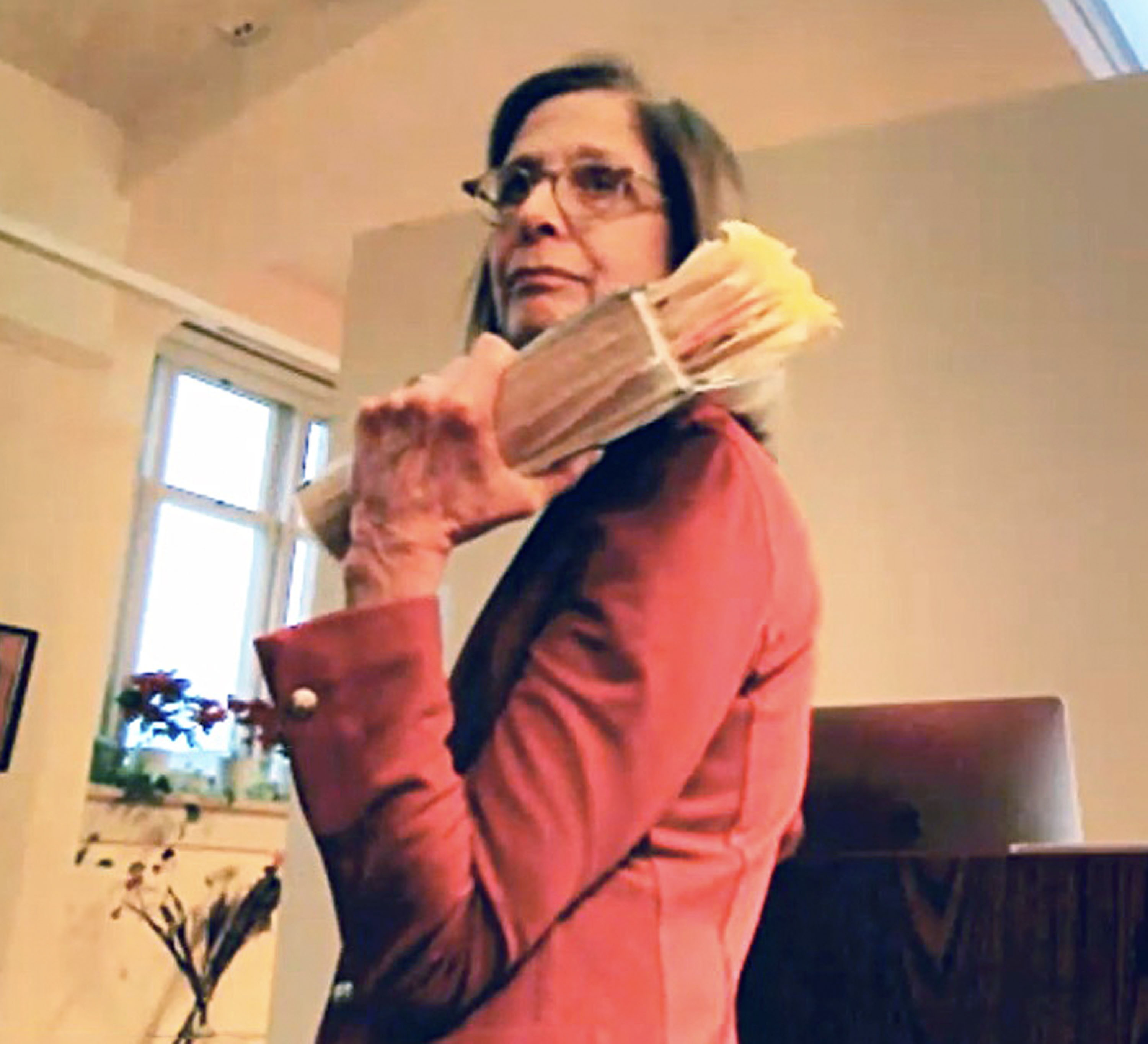
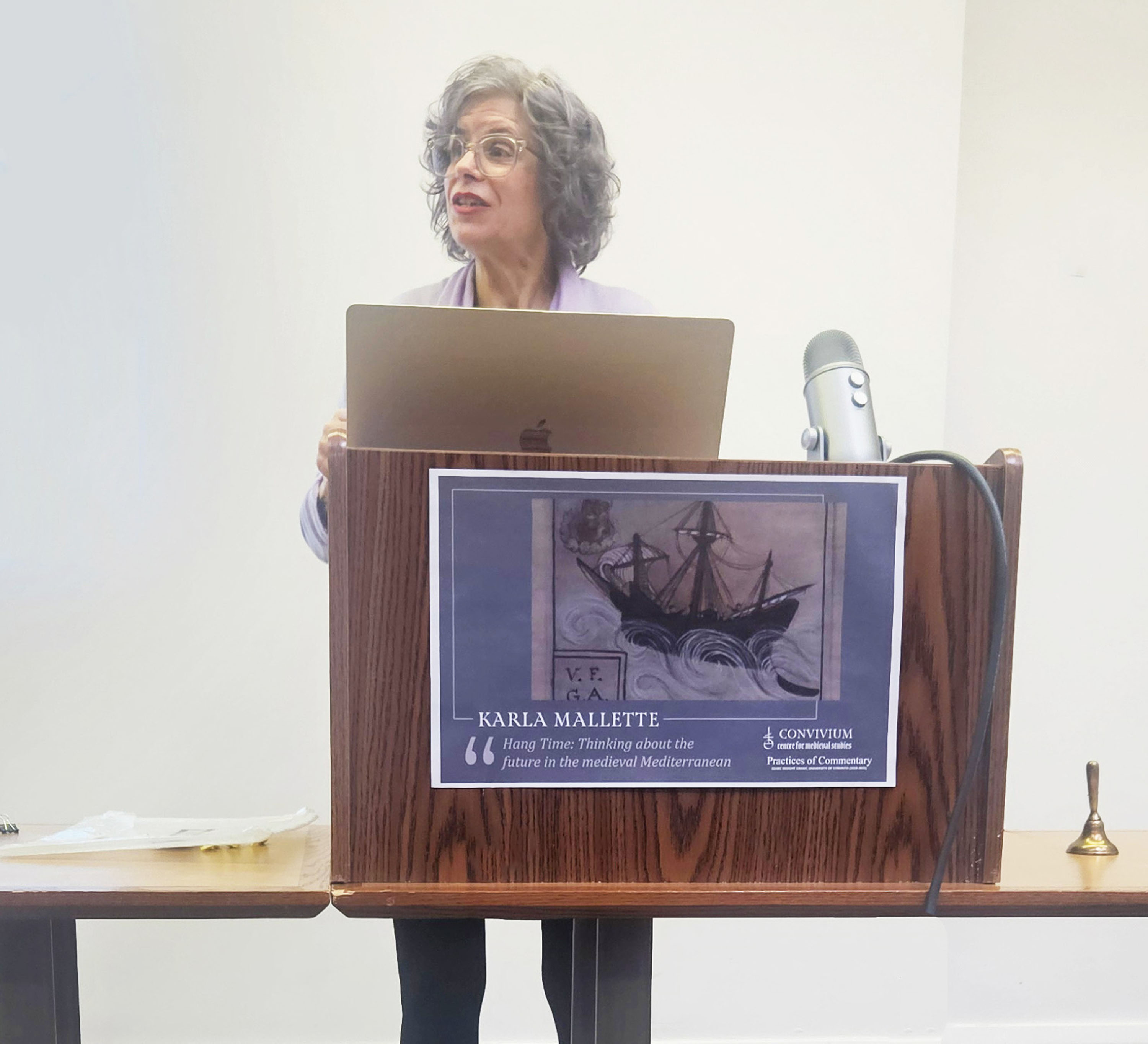
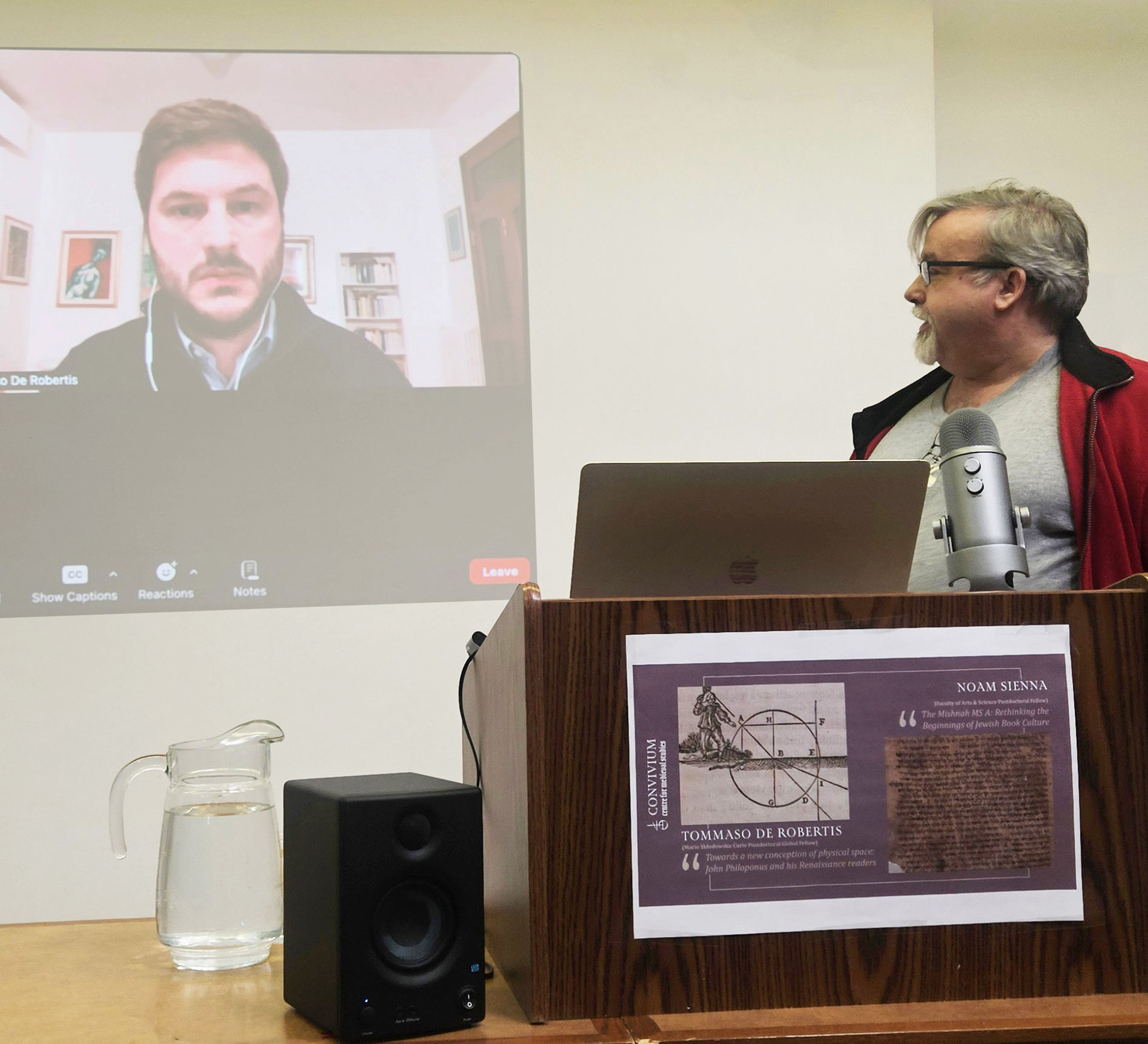
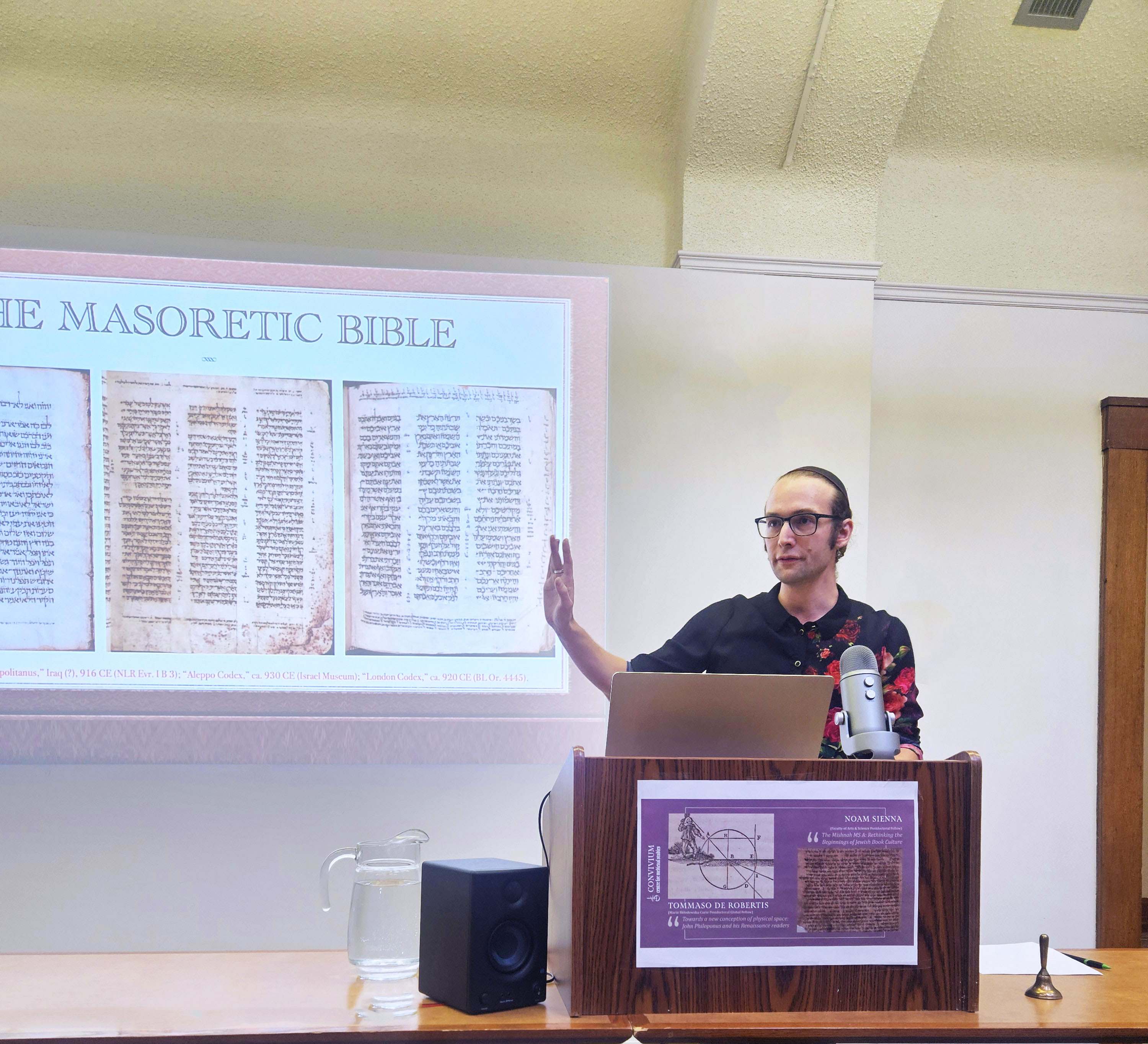
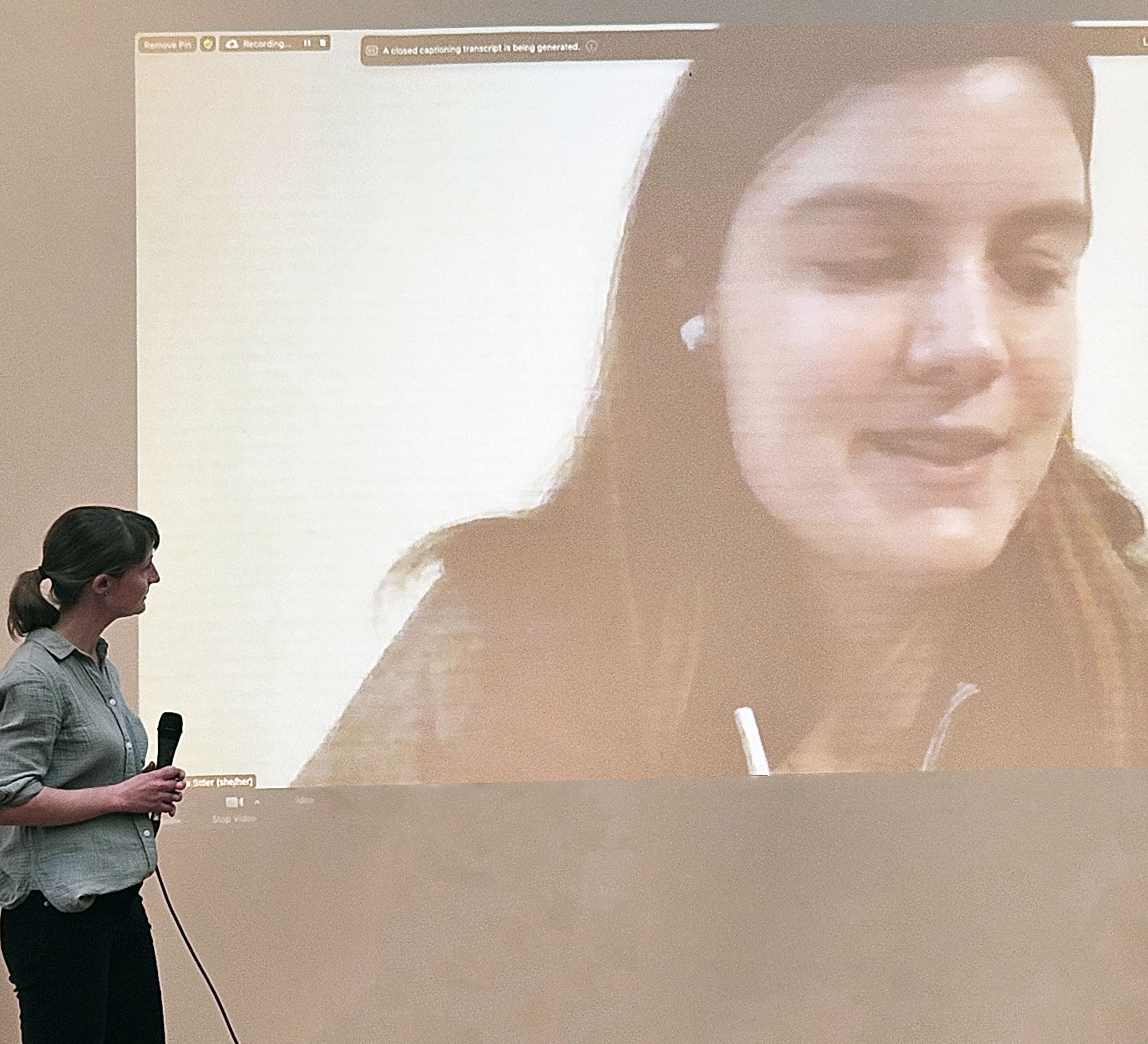
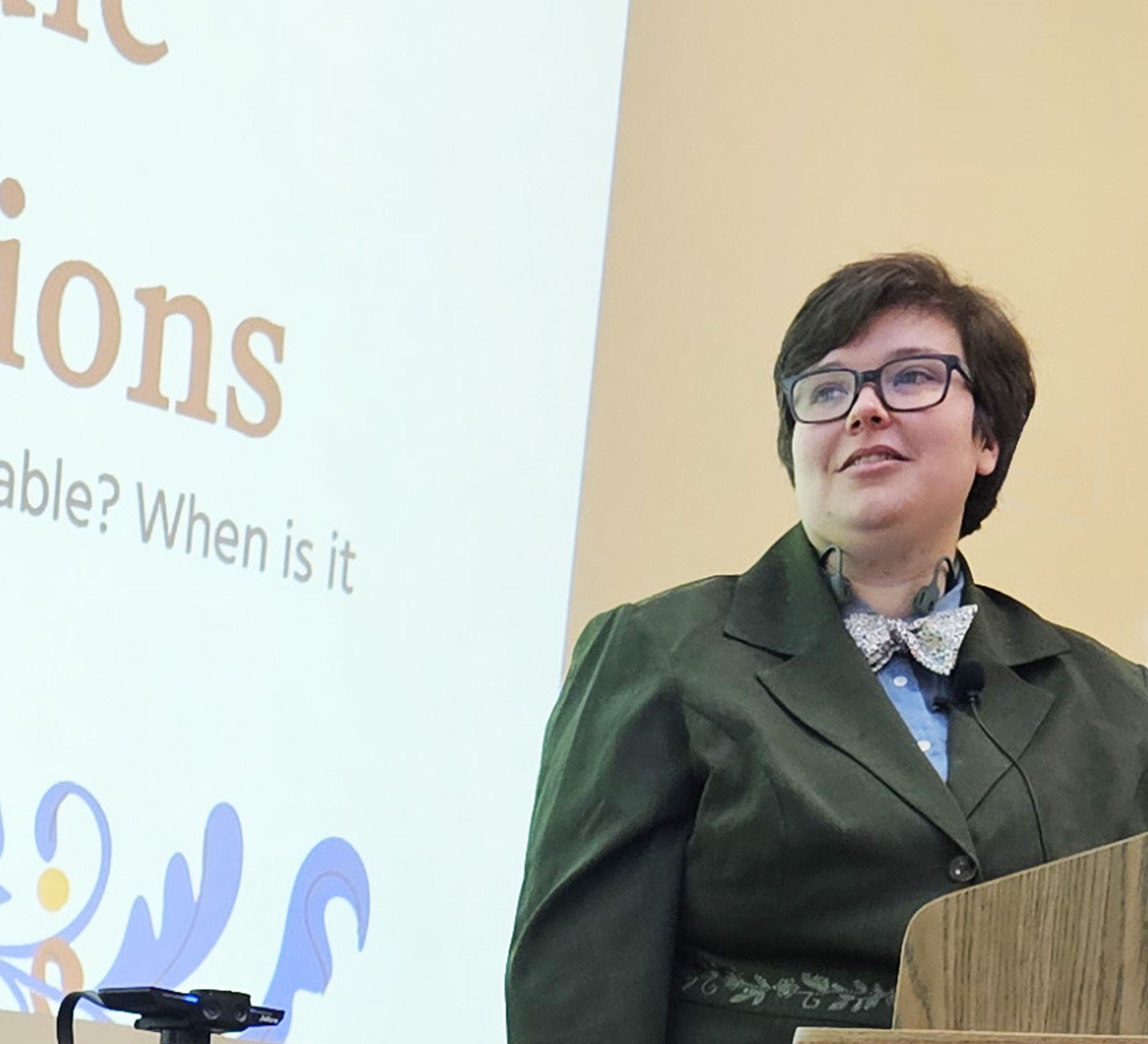
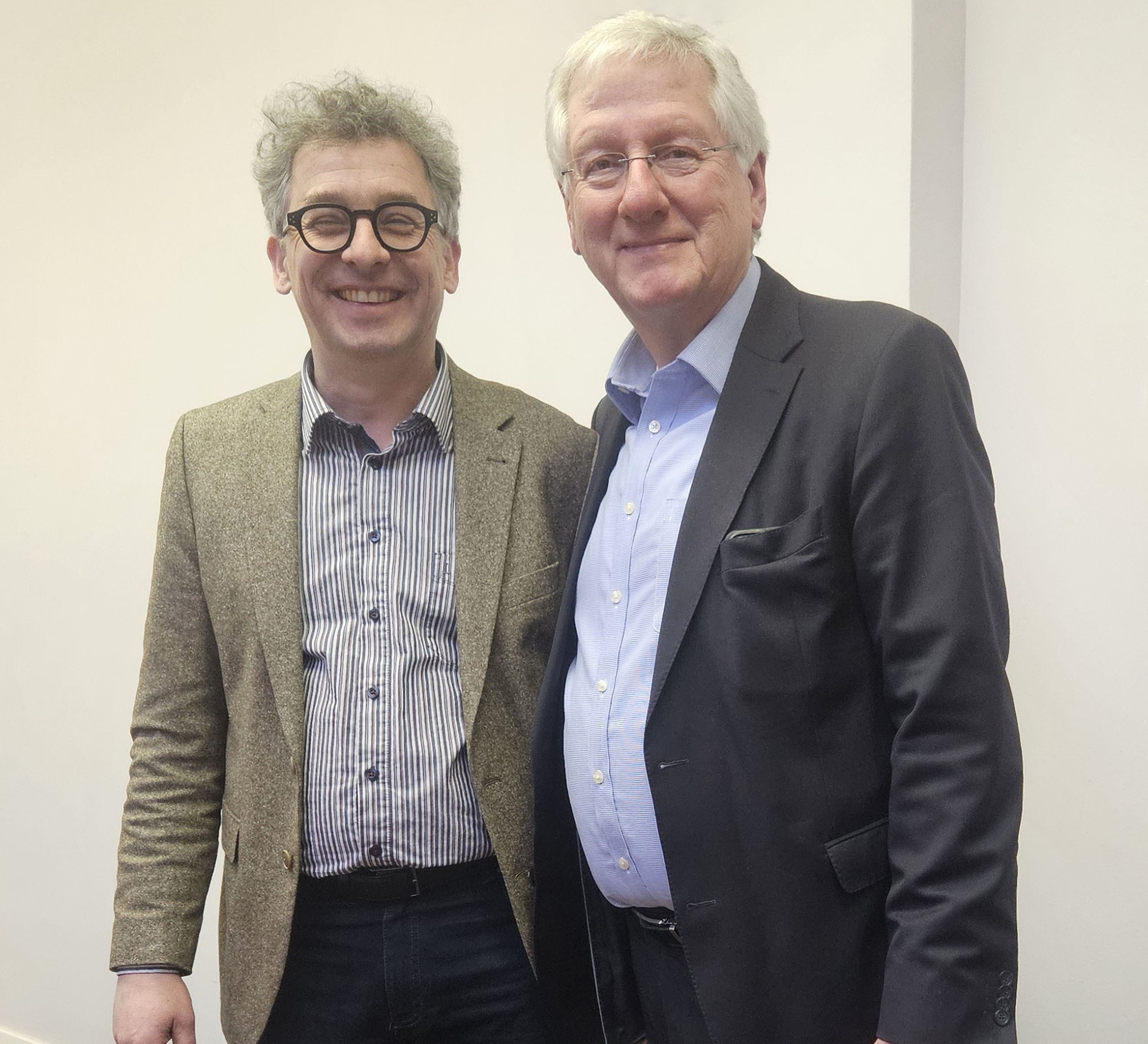
Publications
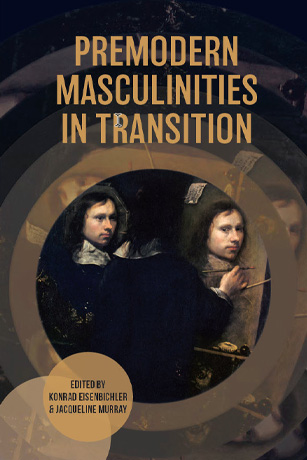
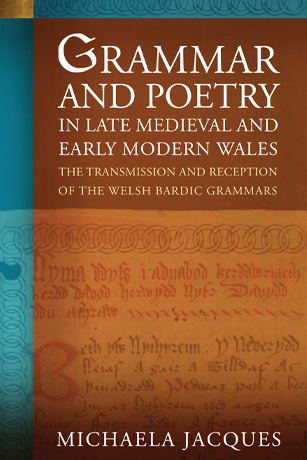
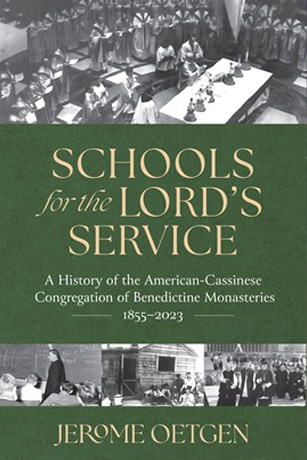
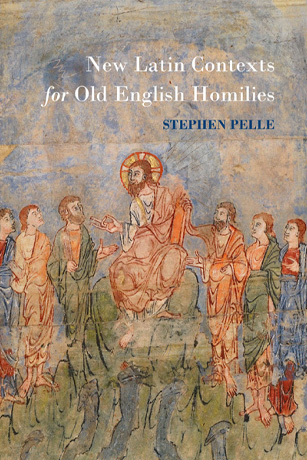
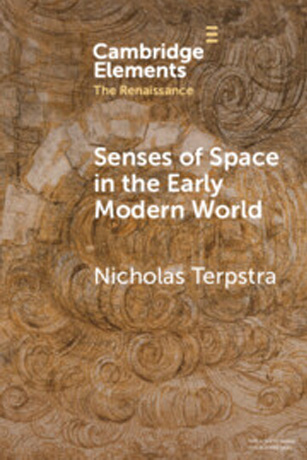
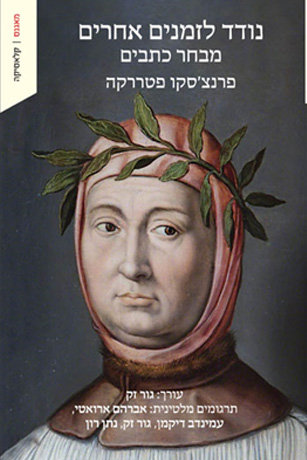
Translations / With Forward By
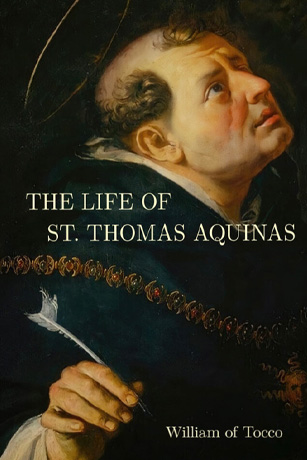
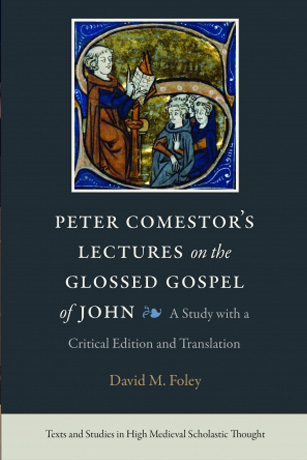
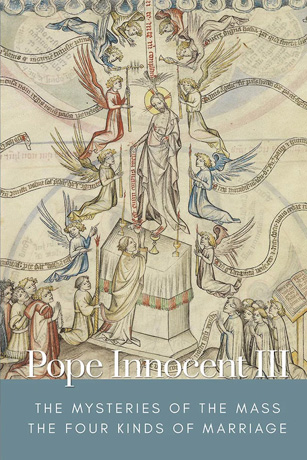
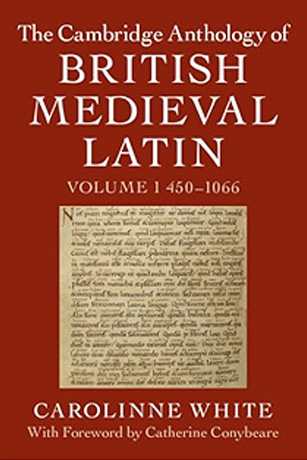
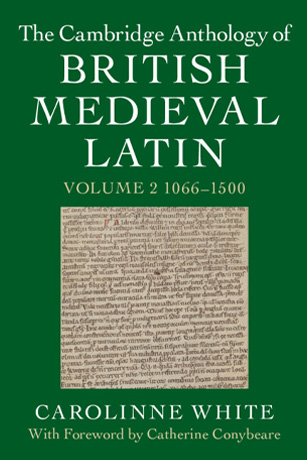
Contributors / Fiction
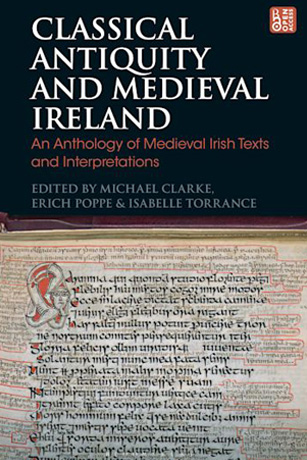
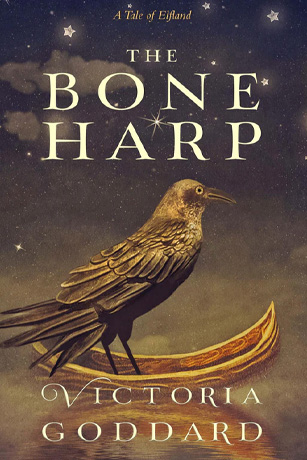
Summer Latin Programme
The Centre for Medieval Studies offers several non-credit summer Latin courses facilitated by senior CMS doctoral students and Teaching Assistants who are thoroughly fluent in Latin. Working under the supervision of Medieval Latin faculty, these TAs are trained specifically to teach Latin in depth. Students who have successfully completed Latin course requirements will be provided a letter detailing the course content and their participation. They may also sit the September Latin examinations with CMS and will receive a Statement of Proficiency detailing the significance and content upon achieving a passing grade.
Beginning Latin / online / May 13-July 5 + July 9-25
An introductory, intensive course for those with little or no previous exposure to Latin, followed by a free supplemental reading course to provide students the ability to consolidate their grasp of the language.
Level I Latin / in person / May 7-17 + May 21-June 27
Readings encompass Latin texts of various periods, countries of origin, and disciplinary interest, with emphasis on close grammatical commentary and analysis. A free online review session precedes this course.
Level II Latin / in person / July 2-August 9
Intended for students who have a thorough knowledge of Latin grammar and a basic working vocabulary, this course prepares students for the Level II Latin Examination with regular sight passages and prepared readings.
TAs are available for regular consultation for each course.


